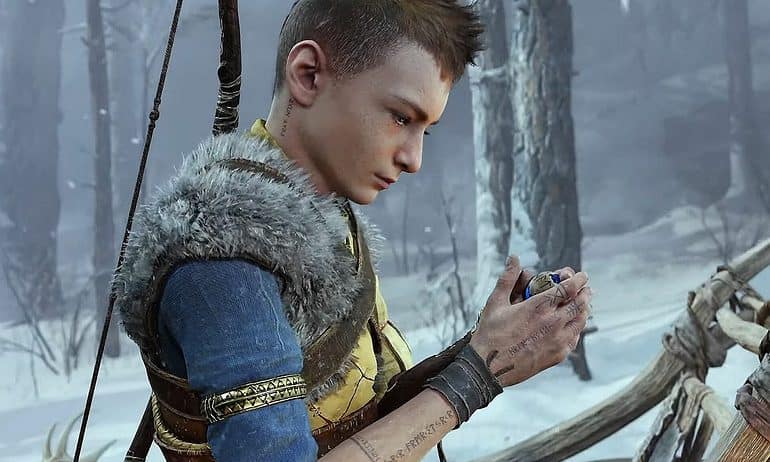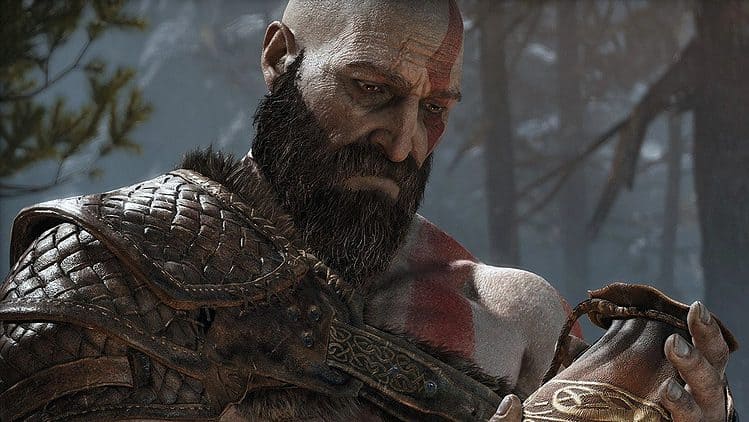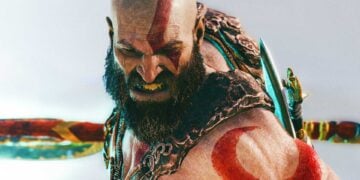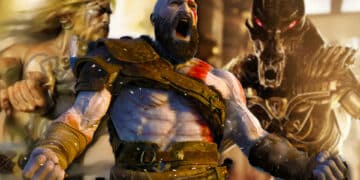Now that players have completed the newly released God of War Ragnarök from Santa Monica Studio, it’s time for the theories about the next sequel, God of War 6, to start coming in. Kratos has just managed to defeat Thor and Odin in the final battle, and bring peace to the Nine Realms of the Norse mythology, starting with Asgard.
RELATED: Did God of War Ragnarok Make Kratos Weaker?
There are a lot of awesome characters that fans would love to see returning, like the dwarf brothers Brok and Sindri, who are blacksmiths who supply Kratos with his upgraded weapons and Chaos Blades, such as the leviathan axe, throughout the Norse Saga. There is also Tyr, the Norse God of War, who advocates for peace, and someone who Kratos comes to respect. There is also the unexpected ally that they found in the world serpent, a giant snake-like creature named Jormungandr. There is also the interesting appearance of Angrboda, who owns Fenrir, is one of the last remaining giants, and is suspected to be Loki’s love interest. Will something happen between her and Atreus someday?
There are about as many theories as there are players, as everyone has their own ideas. However, three that stand out on Reddit at the moment are catching some attention. So here are some theories on what the next God of War game will be about.
First Theory
The first suggested God of War 6 theory was by a Redditor that goes by the name of With-Cheese. Since beating the game themselves, they have started to think of some ideas about what the next match will hold for us. At the end of God of War Ragnarok, Kratos is seen as a saviour, meaning that it could go in many directions. One suggested approach was that someone like a lesser god or even a mortal goes to Kratos to ask for his aid.
In this theory, the pantheon of the person who goes to ask for help has become paranoid and power-hungry, especially since Kratos has already wiped out two different pantheons, the Greek and the Norse. So if he were to go and save civilization from their own power-hungry gods, he would become even more of a hero.

Second Theory
The second suggested God of War 6 theory also came from With-Cheese and offers a slightly different route with the same premise. In this one, a paranoid pantheon (perhaps from Egyptian Mythology of Ancient Egypt?), scared of Kratos’ strength and power, attempts to kill him before he thinks of going after their pantheon.
Either that or the paranoid pantheon kidnaps Kratos’ son, Atreus, in an attempt to find Kratos’ weaknesses so that they could prevent Kratos from killing off their pantheon as well, but this would drive Kratos even more, to go out into their land to find and save his son, possibly causing the downfall of the pantheon in the process, probably with his allies Freya and Mimir in tow.
Third Theory
The third theory was suggested by a Redditor that goes by Go_easy_on_me_folks and indicates that the next game won’t follow Kratos at all and will instead look to Atreus as the next God of War. Their reasoning for the theory is that Ragnarök made a pretty big deal of Atreus wanting to go his own way and Kratos having to let go of watching over his boy. Many other Reddit users agree that Atreus will probably be the focus for God of War 6.
Similarly, No-Arm-4522 suggested something similar: Kratos would be a fully retired and loved god in the Norse lands now that he saved them. They also pointed out that there are a lot of possibilities for them to follow because of how little has been explored about Atreus other than his prophecies. Things like how he can talk to animals, his half-giant abilities coming to the forefront, or maybe even some secrets his mother Faye had been keeping. Wouldn’t it be awesome to play as Atreus as he embarks on a new path?
Hopefully, there will be another game in the series. Of course, it’s unlikely that such a well-loved franchise would end anytime soon, but we never know when Kratos might hang his hat. Director Cory Barlog and director Eric Williams, who were responsible for the first and second Norse saga games respectively, haven’t mentioned anything that might be happening in the next game, so we can only hope that Sony’s Santa Monica Studio isn’t quite done with the story of the God of War.
RELATED: God of War Franchise: 4 More Games Coming After Ragnarök?









He will travel to the land of disney, and fight all of the disney gods, ruled over by the arch god, mickey the mouse.
what is the point of that article, picking random comments from irrelevant people on the worst forum website…..
I guess the 1st and 2nd theories are good but the 3rd one is boring but also it can be possible but I think Atreus is kind of a boring character and no one will enjoy a game in which he is the protagonist and also he has a kind heart, so, it’s impossible for him to be god of war bcz he will easily get afraid of killing anyone.